- JST Home
- /
- Strategic Basic Research Programs
- /
 PRESTO
PRESTO- /
- project/
- Quantum state control and functionalization/
- [Quantum Functionalization] Year Started : 2017
[Quantum Functionalization] Year Started : 2017
Kunihiro Inomata
Development of a quantum interconnect technology toward a large-scale integrated quantum processor
Researcher
Kunihiro Inomata
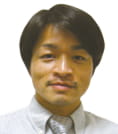
Senior Researcher
Research Center for Emerging Computing Technologies
Advanced Industrial Science and Technology (AIST)
Outline
In order to realize universal quantum computers, it is required to develop an integrated technology for quantum bits (qubits) without inducing decoherence. In this study, I develop a new technology of “quantum interconnect”, which allows us to connect spatially distributed qubits or quantum chips via microwave photons. Based on the technology, I try to approach the large-scale integration of quantum processors, which is required to realize the universal quantum computers.
Erika Kawakami
Towards realization of a universal quantum computer using electrons on the surface of helium
Researcher
Erika Kawakami
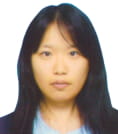
RIKEN Hakubi team leader
Cluster for Pioneering Research/Center for Emergent Matter Science
RIKEN
Outline
Electrons on the surface of helium are expected to serve as qubits which provide high enough operation fidelity to realize a quantum computer since they are electrically and magnetically clean. I aim to realize a universal quantum computer by placing such qubits in a two-dimensional array and executing a surface code quantum error correction.
Yusuke Kozuka
Creating a Material Basis for Quantum Computation Using High-Quality ZnO
Researcher
Yusuke Kozuka
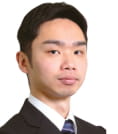
Independent Scientist
Research Center for Magnetic and Spintronic Materials
National Institute for Materials Science
Outline
Building a quantum system resistant to external stimuli is highly demanded for reliable quantum computation. As a material basis for this purpose, we suggest employing a junction between a superconductor and a topological state emerging in a two-dimensional electron system of ZnO under magnetic field. Given that oxide materials tend to form better contacts with superconductors than compound semiconductors, we aim at establishing reliable methods to create and manipulate the quantum states by improving material processes.
Shuntaro Takeda
Development of a programmable loop-based photonic quantum processor
Researcher
Shuntaro Takeda

Associate Professor
School of Engineering
The University of Tokyo
Outline
Photonic quantum computers have the advantage of room-temperature operation and applicability to optical communication. However, they have been lacking scalability and versatility thus far. This project tries to realize a general-purpose photonic quantum computer which can be programmed to perform any quantum computation deterministically. This is enabled by my original proposal to dynamically control a simple loop-based photonic circuit. This architecture will offer a versatile platform for quantum information protocols.
Shuta Nakajima
Quantum space-time dynamics simulator using ultracold atoms
Researcher
Shuta Nakajima
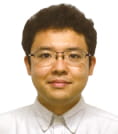
Program-Specific Associate Professor
The Hakubi Center for Advanced Research
Kyoto University
Outline
Recently, researchers have revealed that quantum many-body physics, quantum gravity, and quantum information theory are deeply related each other, and that the black hole information paradox could be associated with non-equilibrium dynamics of isolated quantum many-body systems or quantum chaos. Thus, in this research project, I will build a high-controllable ultracold atomic system in a two-dimensional optical lattice. Then I will try to measure the out-of-time-ordered correlator (a measure of quantum chaos of black holes) of the atomic system with motional degrees of freedom and interactions.
Masayuki Hashisaka
Quantum Hall circuit towards quasiparticle quantum optics
Researcher
Masayuki Hashisaka
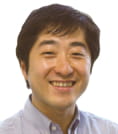
Senior Research Scientist
NTT Basic Research Laboratories
Nippon Telegraph and Telephone Corporation
Outline
In this research, I investigate quantum Hall circuits that pave a way to control quasiparticles in quantum many-body systems. Quasiparticles in fractional quantum Hall systems are considered to have exotic quantum statistics different from Bose or Fermi, which is a key concept of topological quantum information technologies. Quantum Hall circuit will be a platform for developing quasiparticle quantum optics, which enables us to observe and control quantum states of such quasiparticles.
Motoaki Bamba
Phase transition of environment for overcoming the trade-off between controlling and protecting quantum states
Researcher
Motoaki Bamba
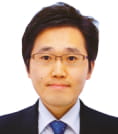
Program-Specific Associate Professor
The HAKUBI Center for Advanced Research
Kyoto University
Outline
In order to push the frontier of quantum technologies into the real societies, we try to establish a strategy for overcoming the trade-off between controlling and protecting quantum states. In contrast to the conventional way relying on the suppression of decoherence sources in fabrication processes, we artificially cause a phase transition of environment incorporating the decoherence sources, which are expected to be pinned by a spontaneously appeared field and an engineered energy gap in the environment, while keeping quantum-bits unchanged.
Michael Fraser
Realization of the strongly-correlated topological Haldane model in exciton-polaritons
Researcher
Michael Fraser

Visiting Researcher
Center for Emergent Matter Science
RIKEN
Outline
Non-Abelian anyons are particles that may robustly store and process quantum information, and are highly sought after for the development of topological quantum computers, however they have yet to be cleanly observed in experiment. This research aims to realize the Haldane model in a hybrid light-matter, optical semiconductor system (exciton-polaritons), leading to a source of optically controllable anyons and the creation of a new practical platform for development of topological quantum information devices.
Tomoyuki Horikiri
Study on development of quantum network technology and applications
Researcher
Tomoyuki Horikiri
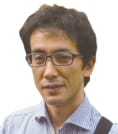
Associate Professor
Graduate School of Engineering
Yokohama National University
Outline
In this project, I will develop technologies for long-distance quantum communication network, which is vital for unconditional security of telecommunication and cloud quantum computing. Necessary ingredients including quantum entanglement light source, quantum memory, wavelength conversion, and frequency stabilization are developed and integrated. Further, study on implementation of cloud quantum computing will be done.
Tomoyuki Morimae
Quantum supremacy on secure cloud quantum computing
Researcher
Tomoyuki Morimae
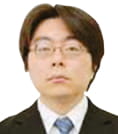
Associate Professor
Yukawa Institute for Theoretical Physics
Kyoto University
Outline
Theorical study of quantum supremacy on secure cloud quantum computing. In particular, two sub-universal models, IQP and DQC1 are considered.













